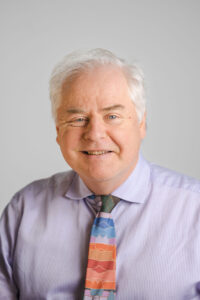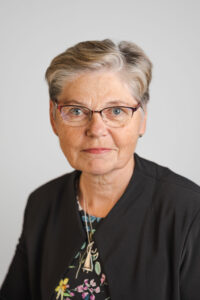Dr Sheuli Porkess elected to be the next President of FPM
Posted on: Tuesday 26 March 2024
Author: FPM
I am very pleased to announce the results of FPM’s Presidential election. We had three excellent candidates in our online ballot and a total of 201 eligible votes were received. Dr Sheuli Porkess won with 111 votes, 54 more than the nearest candidate.
Sheuli is serving as our current, highly effective, Vice-President, and I am delighted that she will continue to play a leading role in further developing and building our Faculty.
Sheuli will take on the President’s role after the AGM in November 2024. Please join me in congratulating Sheuli on being elected to this crucial role within the Faculty.

Dr Chris Worth FFPM
Registrar, FPM
“I am honoured to have been elected as the next President of FPM. Thank you to everyone who voted.
We are at an exciting time for Pharmaceutical Medicine with ever increasing possibilities for better outcomes for patients. I am really looking forward to working with the Board, Chief Executive, FPM, members and our stakeholders to advance the specialty to help realise this potential, both nationally and globally.”

Dr Sheuli Porkess FFPM
President-Elect, FPM
“As you know, it is shortly time for me to stand down and I am pleased that Dr Sheuli Porkess, our current Vice President, has been elected to the role of President. She comes with a strong medical affairs and research policy background, is well networked and is a member of many national health related committees. She has served in research and innovation at the ABPI for 5 years as well as being an established CCT qualified pharmaceutical physician who was at Boeringher Ingleheim based both in the UK and in Germany for 9 years and more recently is medical director in a data analytics company. Sheuli brings strong profile-raising collaborative strengths. On behalf of the Board of Trustees I welcome her to the role where she will be taking the helm of the Faculty during what are likely to be times of considerable change and challenge.“

Dr Flic Gabbay FFPM
President, FPM
“I would like to congratulate Dr Sheuli Porkess on her historic win to be the next President of FPM. Dr Porkess is the first President who has completed the pharmaceutical medicine specialty training programme and is committed to ensuring high standards for pharmaceutical physicians and the profession.
I am looking forward to collaborating with Dr Porkess to modernise FPM so that it is sustainable and meets the needs of pharmaceutical medicine in the UK and globally. The Faculty of Pharmaceutical Medicine has so much potential and I know that Dr Porkess has the determination to lead, inspire and accomplish her vision for FPM to be the global body that it has long promised to be.”

Dr Marcia Philbin
Chief Executive, FPM
Read Sheuli’s candidate statement
The Faculty of Pharmaceutical Medicine (FPM) now 35 years old, and, I believe, at a key point in its development. We now have cohorts of pharmaceutical physicians globally who have progressed specialist training in Pharmaceutical Medicine and are now today’s leaders in Pharmaceutical Medicine. The FPM has significantly improved the understanding of pharmaceutical medicine across other specialties and also with the public, having played a critical part in the recent pandemic, propelling the practice of pharmaceutical medicine from the almost unknown to being discussed on primetime News.
It is now time to build on this strong base, built by the founders of FPM and the specialty, to whom we owe our thanks, and to look ahead to the next 35 years of advancing the science and practice of pharmaceutical medicine for the benefit of patients everywhere.
If elected, the first key priority I would seek to address would be to advance the science and practice of pharmaceutical medicine. An explosion of technical and scientific advances is driving pharmaceutical development and opening up amazing possibilities to improve health (e.g. vaccines, precision medicines, advanced therapies, digital health and medical devices). As a specialty, we are uniquely positioned to ensure these developments are used effectively to address both current and future health needs. This means pivoting the specialty to be more future facing. We must ensure that the power of new technologies is understood and appropriately regulated through our work in education, setting standards and working with policy-makers. We need to further embed equality, diversity and inclusion in how we work and engage with patients and work towards global health, taking into account environmental issues (e.g. decarbonising clinical trials). This theme links to the FPM strategy and it’s now time to embed this into FPM work.
The second key priority is the need to strengthen the understanding of, and trust in, pharmaceutical medicine and its impact as a multidisciplinary specialty. The theme of trust is reflected in FPM’s current strategy. Strengthening trust requires supporting pharmaceutical physicians to work to high standards through education, training, examinations and specialist recognition. It also includes building on the work we have started with undergraduate medical training, with other Medical Colleges and Institutions, Health Charities, working with patients and patient organisations, collaborating internationally and working across the life sciences ecosystem, including with government. We need to build on the significant increase in interest in the specialty that arose from Covid where FPM and its members played important roles in contributing to important solutions such as the vaccine developments, alongside engaging clinicians, patients, the public and policy-makers.
Critically we need to engage FPM’s membership to ensure we understand member’s needs and what FPM can do further to support them in practicing pharmaceutical medicine in today’s environment. This means understanding the full range of work within pharmaceutical medicine, both new and established, and reflecting this in the education, training, standards, policy work and support for members of FPM. It’s also important that FPM can offer volunteering opportunities that are engaging and fulfilling and bring together our members’ expertise.
If elected, as the first president who has completed pharmaceutical medicine specialist training, I grasp the significance of a well-trained workforce in this field and empathise with the challenges of training and revalidation. Currently serving as vice-president and Trustee of FPM since November 2021, with a history as chair of the FPM Policy and Communications Group during the pandemic, and as an examiner, I bring over 15 years of experience within FPM. This tenure provides me with profound insights into FPM’s workings, governance as a charity, challenges faced by our small specialty, and the opportunities within our reach.
My diverse experience in pharmaceutical medicine spans medical affairs, clinical development, pharmacovigilance, regulatory affairs, quality management, policy, and my current role in AI and real-world data. Having worked internationally in various settings, including pharmaceutical companies, trade associations, SMEs, and as an independent consultant, I understand both specific and common challenges in pharmaceutical medicine.
As the former Executive Director of Research, Medicine, and Innovation at the ABPI, I recognise the importance of engaging with policymakers and stakeholders across our specialty’s ecosystem. My past efforts, such as uniting diverse groups on critical topics like clinical research, women’s health, antimicrobial resistance, patient involvement, Brexit, COVID, multimorbidity, and rare diseases, showcase my commitment.
As the next President, if elected, I am eager to apply my expertise to advance pharmaceutical medicine, serve FPM membership, and contribute to the organization’s mission, ultimately benefiting patients.
